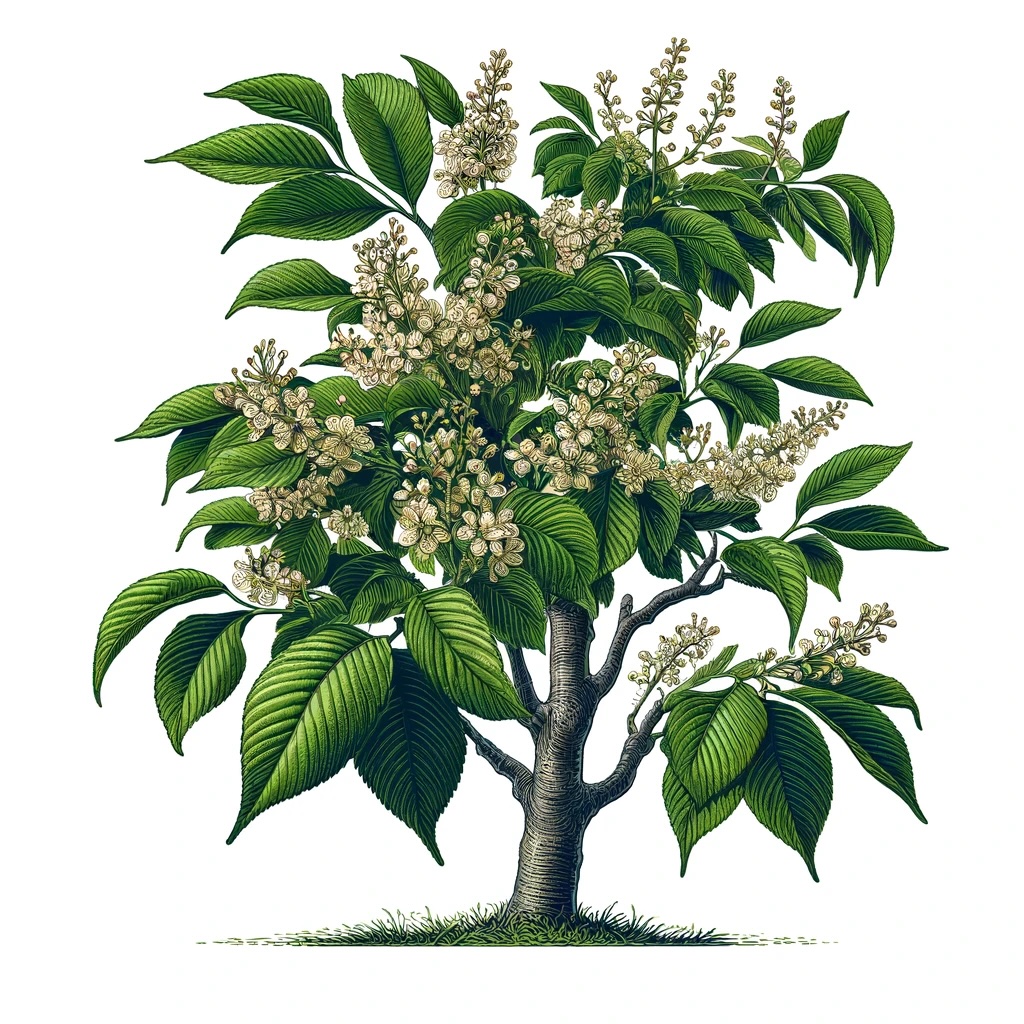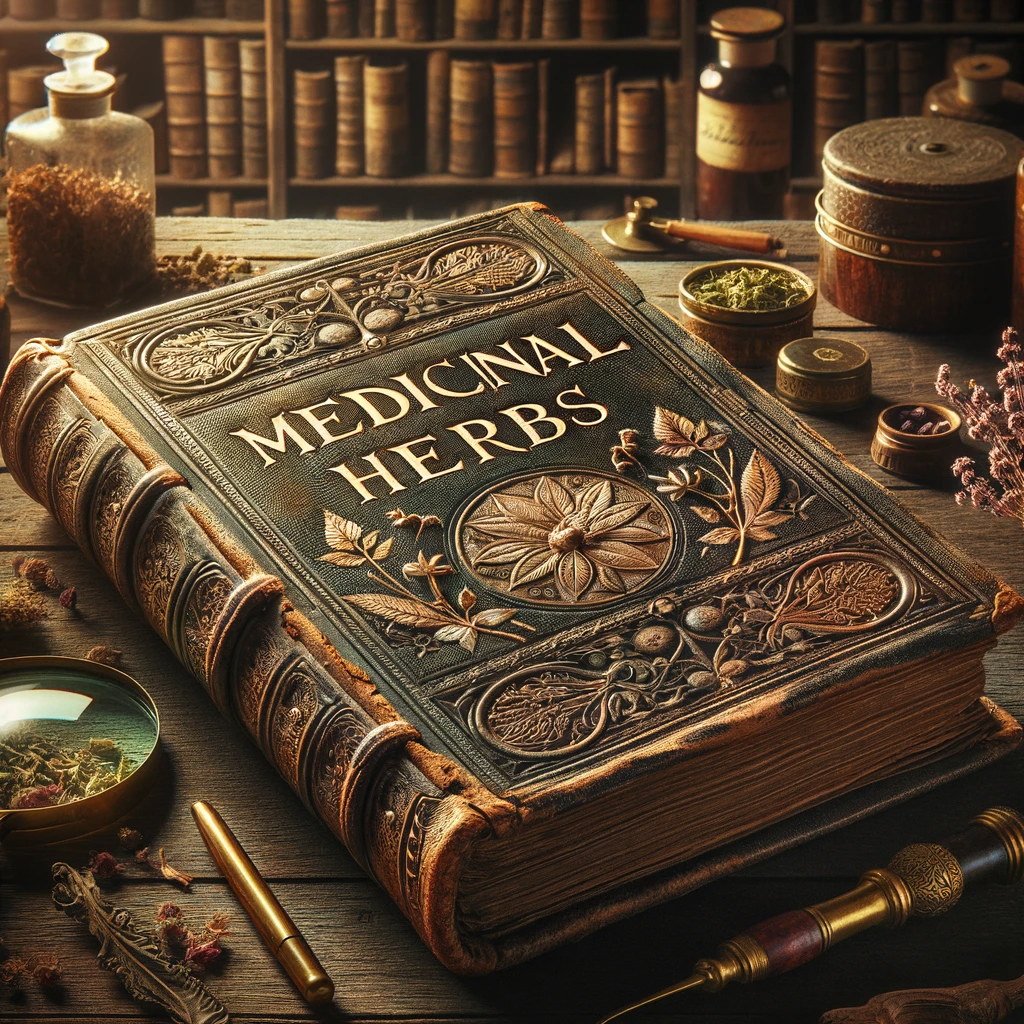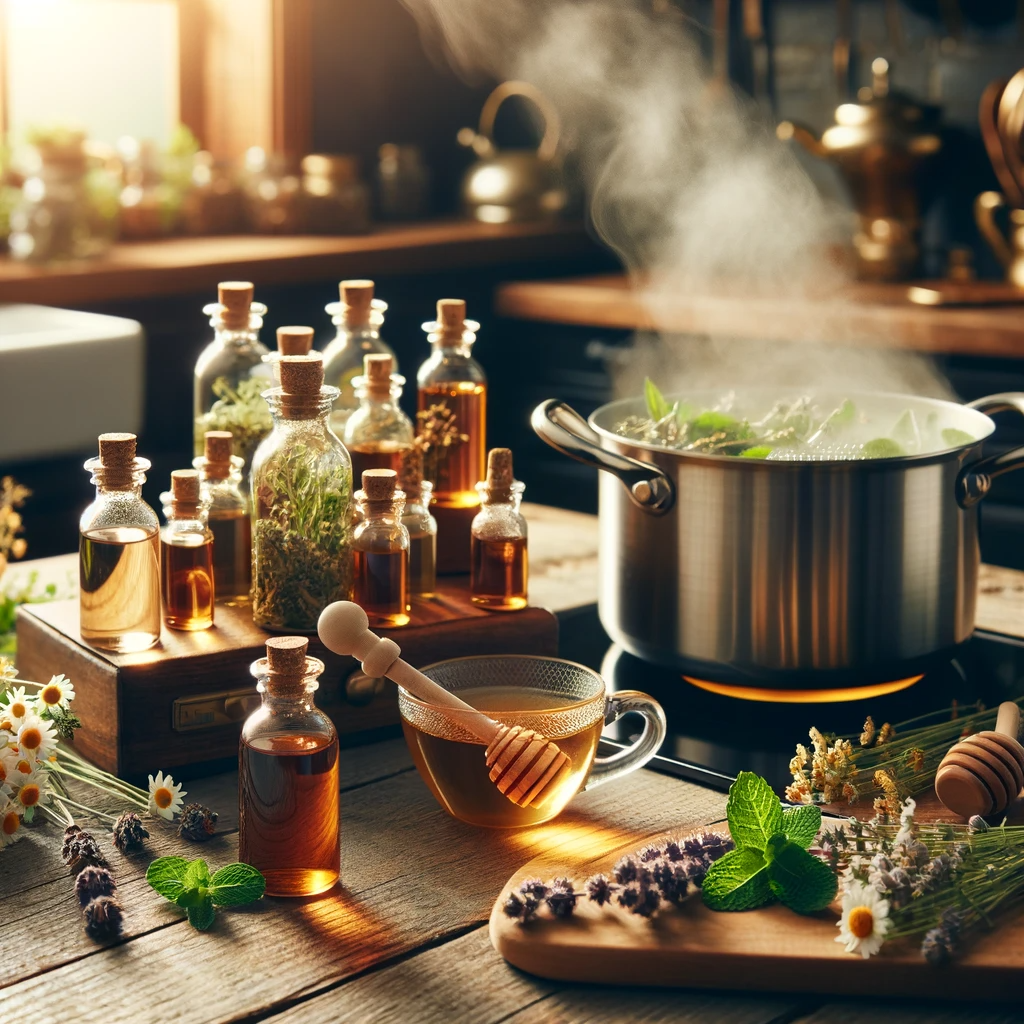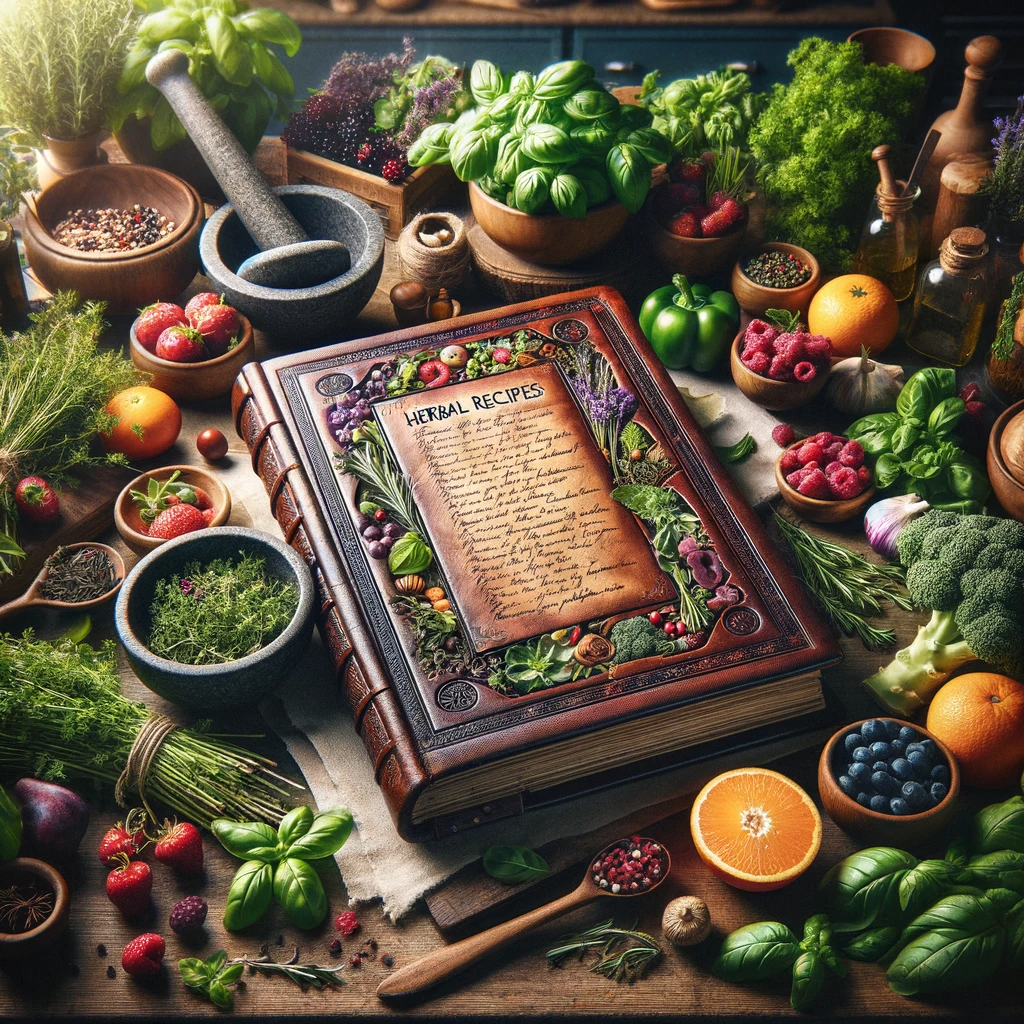This website contains affiliate links for products I use and love. If you take action (i.e. subscribe, make a purchase) after clicking a link, I may earn some tea money, which I promise to drink while creating more helpful content like this.
Mullein Monograph:. Exploring the Benefits, History, and Folklore
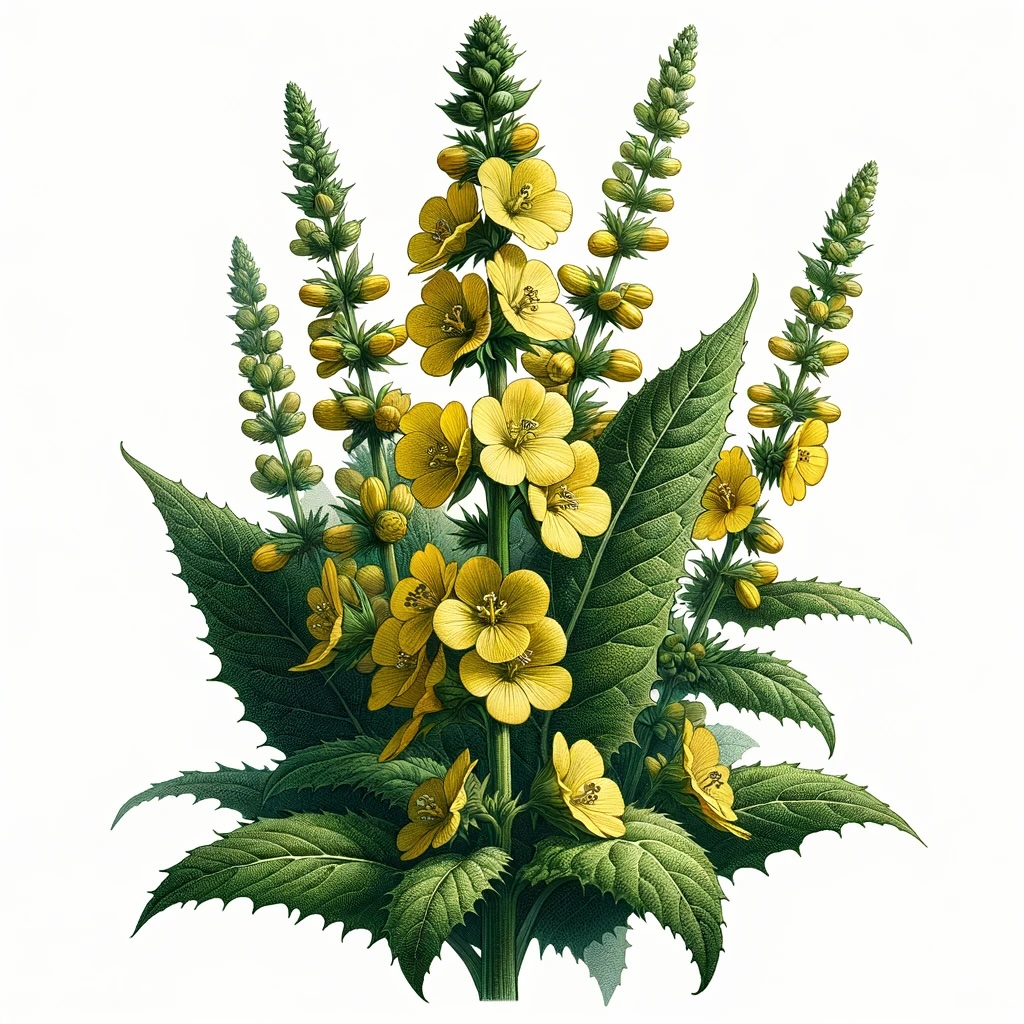
Mullein (Verbascum thapsus) is renowned in the herbal world for its towering presence and velvety leaves, often spotted in dry, sandy soils across Europe, Asia, and North America. Traditionally celebrated for its soothing properties, Mullein is particularly favored for treating respiratory ailments. Its leaves and flowers possess expectorant, demulcent, and anti-inflammatory properties, making it a go-to herb for conditions like bronchitis and irritating coughs. This herb's gentle yet effective nature has secured its place in the annals of herbal medicine, offering relief and protection to the respiratory system.
Common Name: Mullein
Latin Name: Verbascum thapsus
Mullein is a towering herb known for its soft, woolly leaves and tall spike of yellow flowers, often found in dry, sandy soils.
Botanical Overview
Family: Scrophulariaceae
Identification: Mullein has a distinctive appearance with its rosette of large, velvety leaves and a central stem that can grow up to 2 meters tall, topped with dense clusters of yellow flowers.
Parts Used Medicinally: Leaves, flowers
Habitat: Native to Europe and Asia, and widely naturalized in North America, often found in meadows, roadsides, and waste areas.
Herbal Actions
Primary Pharmacological Properties: Expectorant, demulcent, anti-inflammatory, mild sedative.
Energetic Qualities and Taste
Energetic Properties: Cooling and moistening.
Taste: Slightly bitter and astringent.
Medicinal Uses
Mullein's efficacy in treating respiratory ailments makes it a staple in herbal respiratory care. Its robust anti-inflammatory and demulcent properties allow it to soothe the respiratory tract, making it particularly effective for conditions such as bronchitis, characterized by the inflammation of the bronchi, and persistent dry coughs that result from irritation in the throat. Additionally, Mullein aids in loosening and expelling mucus, which is often a primary concern in respiratory conditions. This action helps clear the airways, easing symptoms of congestion and enhancing breathing. Its soothing effects are also beneficial for treating hoarseness, helping to calm irritated vocal cords and restore the voice.
Health Conditions Addressed: Mullein is particularly effective for respiratory conditions such as bronchitis, dry coughs, and hoarseness. It soothes the respiratory tract and helps expel mucus.
Synergies: Works well combined with other expectorants like elecampane and antibacterial herbs such as echinacea.
Culinary Uses
Usage in Cooking: Not commonly used in cooking due to its fuzzy texture and mild bitterness.
Flavor Profile: Bitter and earthy.
Contraindications and Precautions
Possible Side Effects: Rare, but may include skin irritation or breathing difficulties in cases of allergy.
Interactions: No known severe drug interactions.
Special Considerations: Should be used with caution during pregnancy; consult with a healthcare provider.
Cultivation Tips
Growing Conditions: Thrives in full sun with minimal water, preferring poor, disturbed soils.
Harvesting Methods: Leaves are best harvested before the flowering stage, while flowers are collected as they bloom.
Historical Use and Folklore of Mullein
Traditional Uses
Mullein has a rich history in herbal medicine, primarily used for treating respiratory conditions like tuberculosis, a testament to its potent therapeutic properties. Its ability to alleviate symptoms associated with various pulmonary diseases has made it a valued herb in traditional medicinal systems across Europe and Asia.
Indigenous Use
While not native to the Americas, mullein was quickly adopted by Native American tribes once introduced, utilizing it for similar respiratory conditions due to its effectiveness in treating lung-related ailments.
Cultural Significance
In folk medicine, mullein is often regarded as a protective herb, believed to ward off evil and negativity. This use reflects its standing not only as a physical healing agent but also as a spiritual protector.
Folklore and Mythological Associations
Mullein holds a place in various cultural mythologies, often associated with protection and love spells. It was believed that carrying mullein could ensure safety and attract love, linking the plant's physical healing properties with metaphysical and emotional wellbeing. This dual significance highlights the deep cultural and mystical connections people have historically established with mullein.
Recipes and Preparation Methods
Medicinal Preparations
Mullein is versatile in its medicinal applications, often prepared as an infusion or tea from its dried leaves and flowers. This simple preparation method allows the beneficial properties of mullein to be easily extracted and consumed, providing relief for respiratory issues. Additionally, mullein is a common ingredient in herbal cough syrups, valued for its soothing and expectorant qualities. To make a mullein tea, steep the dried leaves or flowers in hot water for about 10 to 15 minutes, then strain and drink the tea to alleviate coughs and respiratory irritation.
Mullein's comprehensive profile demonstrates its value, especially in treating respiratory ailments, highlighting its role as a gentle yet powerful aid in herbal medicine.
The information provided on this website is for educational purposes only, and is not FDA approved. It is not to be considered health advice. Always do your own research and seek the guidance of a qualified healthcare practitioner before working with any herb. Herbal Ella is not liable for any action or inaction you take with the materials and information provided. Read here for more information.
Recent Articles
-
Wild Cherry Monograph: Wild Cherry: Nature's Respiratory Ally
May 02, 24 04:52 PM
Discover the healing potential of Wild Cherry with our comprehensive monograph. Explore its benefits and uses for respiratory health. -
DIY Herbal Remedies for Respiratory Health
May 02, 24 03:46 PM
Explore easy DIY herbal remedies for respiratory health with Herbal Ella. Learn to make teas, tinctures, and more to breathe better naturally -
Understanding the Respiratory System - Anatomy and Functions
May 02, 24 03:23 PM
Discover the respiratory system's anatomy and functions with clear visuals and simple explanations to keep you breathing healthily
* Privacy Policy * Disclaimer *

